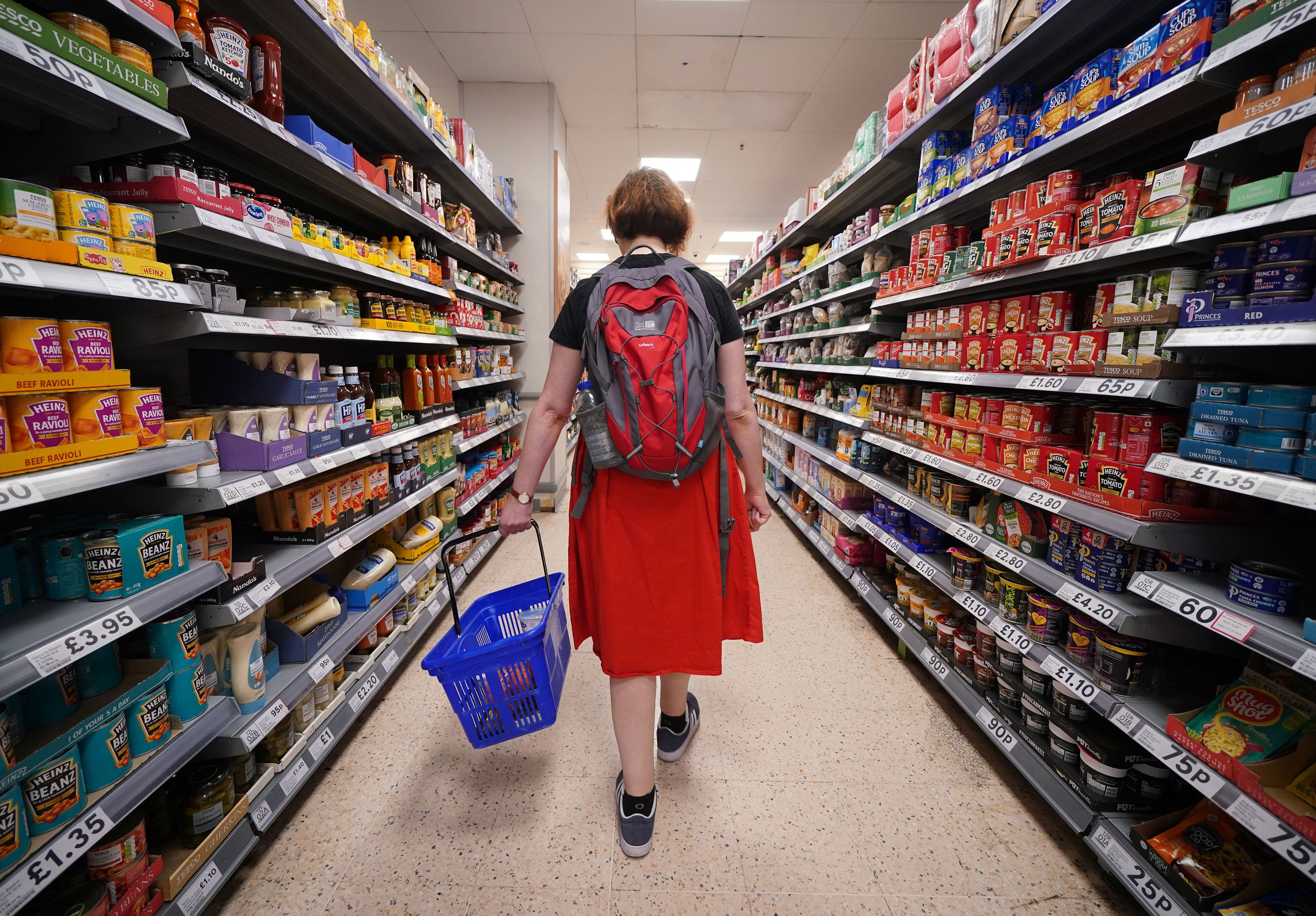Food inflation hits record level as prices rise 10.6% in a year
More than three in four Britons say they will be ‘moderately or severely affected’ by cost of living crisis

Your support helps us to tell the story
From reproductive rights to climate change to Big Tech, The Independent is on the ground when the story is developing. Whether it's investigating the financials of Elon Musk's pro-Trump PAC or producing our latest documentary, 'The A Word', which shines a light on the American women fighting for reproductive rights, we know how important it is to parse out the facts from the messaging.
At such a critical moment in US history, we need reporters on the ground. Your donation allows us to keep sending journalists to speak to both sides of the story.
The Independent is trusted by Americans across the entire political spectrum. And unlike many other quality news outlets, we choose not to lock Americans out of our reporting and analysis with paywalls. We believe quality journalism should be available to everyone, paid for by those who can afford it.
Your support makes all the difference.Food inflation has reached an all-time high, after prices soared by 10.6 per cent in the year to September.
This is up from the 9.3 per cent recorded in August by the British Retail Consortium (BRC)-NielsenIQ index.
Over the past year, the cost of fresh food products spiked by a record 12.1 per cent, rising from 10.5 per cent last month.
The spiralling cost of food has been driven in part by the war in Ukraine, which has made products such as vegetable oil more scarce.
Some items have been adversely affected by drought in Europe. However, the price of fruit such as strawberries and tomatoes has dropped because of the prolonged period of sunshine.
Rising food prices have contributed to the worst inflation seen in the UK since the early 1980s, with economists predicting that the 10.1 per cent level reached in August will grow further.
Amid such economic pressures, Helen Dickinson, the head of the BRC, urged the government to freeze planned increases in business rates, saying it would allow retailers to charge the public less for goods.
“Retailers are battling huge cost pressures from the weak pound, rising energy bills and global commodity prices, high transport costs, a tight labour market and the cumulative burden of government-imposed costs,” she said.
“And, with business rates set to jump by 10 per next April, squeezed retailers face an additional £800 million in unaffordable tax rises.
“Government must urgently freeze the business rates multiplier to give retailers more scope to do more to help households.”
Mike Watkins, head of business insight at NielsenIQ, said that 76 per cent of Britons fear they will be moderately or severely affected by the cost of living crisis in the next three months. This is a significant increase from the summer, when 57 per cent of people expressed concern.
The government has been accused of gambling with the economy by increasing borrowing and reducing tax at a time of financial instability. Kwasi Kwarteng, the chancellor, announced the measures in his mini-Budget on Friday, which set out Liz Truss’s “plans for growth”.
The announcement spooked investors, leading the pound to plunge to an all-time low against the US dollar.
Labour described the government’s approach as a “very risky casino-style gamble”, while Huw Pill, the Bank of England’s chief economist, acknowledged on Tuesday that interest rates may have to be lifted again to reduce inflation to 2 per cent.
“It is hard not to draw the conclusion that all this will require significant monetary policy response,” he said.


Join our commenting forum
Join thought-provoking conversations, follow other Independent readers and see their replies
Comments